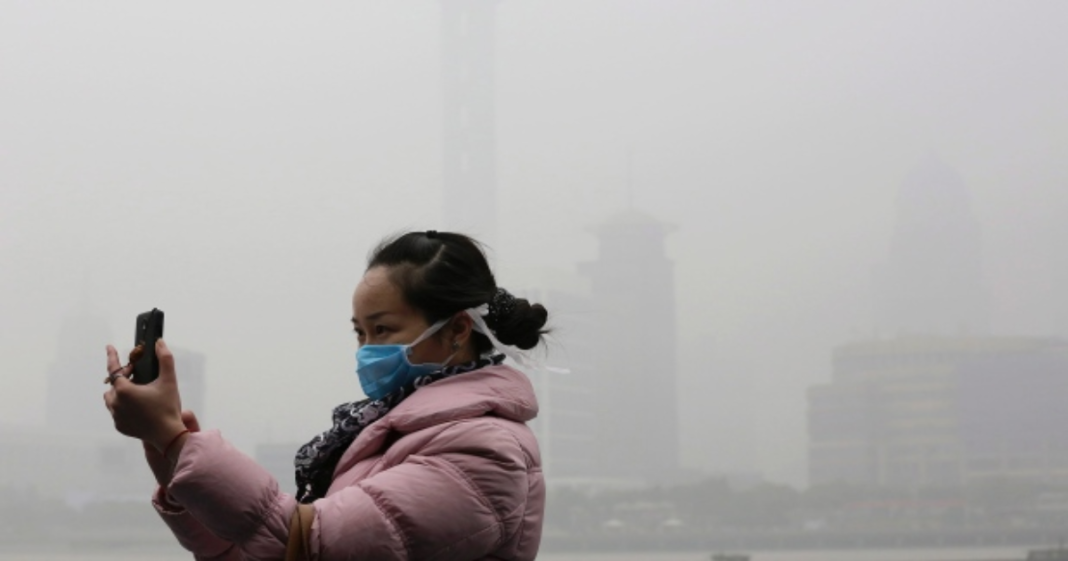It is one of the “costs of doing business” that you will not hear discussed in corporate boardrooms, but it’s an issue that affects every living being on Earth. A new study from the University of British Columbia now shows air pollution to be the fourth leading cause of premature death across the world, killing 5.5 million people every year. This makes it a greater risk factor than hunger, sexually-transmitted disease, and obesity, as well as drug and alcohol abuse. The death rate is disproportionately higher in China and India, where 3 million deaths in 2013 were attributable to poor air quality. In the U.S. and Europe, approximately 280,000 premature deaths are caused by airborne pollutants.
These grim figures are likely to get higher, despite worldwide efforts to reduce industrial and agricultural pollution.
Although the problem is a global one, the causes vary from one region of the planet to another. In China and India, currently the fastest-growing industrial economies in the world, much of the pollution comes from motor vehicles as well as the use of coal and wood as fuel for home cooking and heating. In more advanced nations with stricter environmental regulations, like America, European Union, and Japan, most air pollution comes from agricultural sources – primarily field burning and the use of ammonia-producing fertilizers.
The Chinese government has certainly taken notice of the crisis. The situation is particularly dire along the coastal region between Beijing and Shanghai; the smog has been so thick that the Beijing Capital International Airport was forced to cancel 227 takeoffs last year because of poor visibility. Last year, China put a three-year moratorium on approval for new coal mines as it shuts down 1,000 existing mines across the country. The Beijing government will attempt to reduce the use of coal as an energy source by 37.4 percent while increasing the use of renewable sources such as wind and solar by at least 21 percent.
India is taking similar drastic steps to curb air pollution. At the recent climate talks in Paris, New Delhi pledged to reduce India’s emissions by 34 percent from 2005 levels over the next fifteen years. The country also plans to get 40 percent of its power from renewable source by 2030, in addition to stepping up reforestation efforts. Unfortunately, the Indian government will have to deal with continued use of coal and animal dung by private households.
Of course, entrepreneurs have leaped on the commercial opportunity; a Canadian start-up company, Vitality Air, is making a killing selling canned fresh air to Chinese consumers at $14-20 a pop. While Vitality Air’s product started out as a novelty item, it has become a big seller in a region of the world where the air is so polluted that simply standing outside can constitute an immediate health hazard.
There is a silver lining. The urgency of the problem is serving as a wake-up call to world leaders, who are starting to take aggressive, immediate steps to reduce air pollution. Since the Chinese government began monitoring air pollution levels and issuing warnings, levels of airborne pollutants appear to have stabilized and even dropped slightly. The entire issue is bringing greater attention to the problem of global climate change and the need to reduce CO2 emissions – and could pressure decision-makers to accelerate plans for transitioning to renewable energy sources. Dr. Michael Brauer of UBC’s School of Population and Public Health points out,
“One of the problems with climate change [is] people have difficulty seeing the impacts right now…a lot of it is ‘in the future.’ Climate change has a slow, progressive impact, but the work we’re doing on air pollution is a little more immediate for people.”
After all, everyone has to breathe, even the climate deniers.



![Senator Schumer: “Single Payer [Health Care] is On The Table”](https://sandbox.trofire.com/wp-content/uploads/2017/07/Universal-Healthcare-218x150.jpg)
